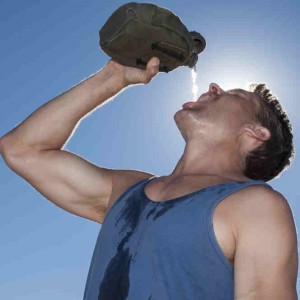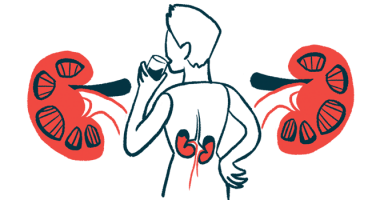PHA Starts 12 Days of PHA Resources with Climate Issues and Tips

 The Pulmonary Hypertension Association, one of the country’s most prominent non-profit support, education, advocacy and awareness associations, has just launched a series of online PH learning materials for the holidays, titled, “12 Days of PHA Resources.” According to the PHA, it is common for PH patients to experience varying degrees of discomfort because of changes in weather and altitude, so the first day of their best practices for those with PH tackles several concerns about how climate affects this condition, and what one could do to help alleviate or avoid any symptom flare ups.
The Pulmonary Hypertension Association, one of the country’s most prominent non-profit support, education, advocacy and awareness associations, has just launched a series of online PH learning materials for the holidays, titled, “12 Days of PHA Resources.” According to the PHA, it is common for PH patients to experience varying degrees of discomfort because of changes in weather and altitude, so the first day of their best practices for those with PH tackles several concerns about how climate affects this condition, and what one could do to help alleviate or avoid any symptom flare ups.
High Altitude and PH
The lower atmospheric pressure in high altitudes means there is less oxygen in one’s circulation. This hypoxic state results in “Altitude Sickness.” While anyone can experience altitude sickness, it can be more difficult and dangerous for PH patients, as the pulmonary vasculature tends to constrict in high altitudes, resulting in an increase in blood pressure and the debilitating symptoms of PH. Patients with supplemental oxygen must remember to adjust the flow oxygen accordingly. High altitudes also mean there is less humidity. The drier air can be quite irritating to PH patients, and may make them feel worse.
[adrotate group=”4″]
The PHA recommends those with PH to first consult a pulmonologist or PH specialist before going to high altitude places. If one is planning to move to a place with higher altitude, a trial period of residence is suggested. To learn more, visit the PHA’s Traveling with PH section.
Warm Weather and PH
Warm weather can also make PH more difficult to cope with as there is an increased risk of heat exhaustion, heatstroke and dehydration. The PHA recommends the following to help keep cool during hot summer months or when traveling in warmer places.
- Stay hydrated, keeping in mind any fluid restrictions your attending physician may have prescribed. Avoid diuretics, such as caffeine, alcohol, and herbal tea.
- Wear light, loose-fitting clothing, and provide yourself with a wide-brimmed hat, or umbrella.
- Stay in an air-conditioned environment. A fan can be substituted, but heat-related illness cannot be avoided by using only a fan when the temperature is over 90 degrees. If you don’t have air conditioning at home, consider visiting a temperature-controlled public place such as a mall or library.
- Don’t over-exert yourself. Try to avoid physical work during the hottest part of the day.
- Wear sunblock, even in a car. Use broad-spectrum, water-resistant sunblock of a minimum SPF 15. Apply liberally and re-apply every two hours after swimming or sweating.
[adrotate group=”4″]
Warm Weather Medication and Dressing Information
- Do not leave medications such as Flolan® (epoprostenol), Remodulin® (treprostinil) or Ventavis® (iloprost) in the car, as they are heat-sensitive.
- Epoprostenol users should keep plenty of ice packs on hand.
- You’ll need to change your dressings more often if you tend to sweat. Keep your catheter site and dressing clean and dry.
- Diuretics can promote dehydration in the heat. Inform your PH specialist if you have been sweating excessively, have had excessive weight loss or are experiencing low blood pressure and/or new or worsening lightheadedness or dizziness.
Cold Weather and PH
Cold weather is also a cause for concern in PH, especially since it can bring about flu season. Here are some of the PHA’s indoor and outdoor tips:
- Staying indoors is the best way to avoid the harsh effects of cold weather, but if you are also prone to irritation from dry indoor air, consider a humidifier.
- When outside, wear a mask or scarf around your face to help keep air warm around the mouth.
- Prevent hypothermia and chills by layering your clothes, and wearing warm headwear.
- Oxygen users should keep an extra cannula with them.
- If exercise is recommended by your PH specialist, you can walk on a treadmill indoors if it’s too cold outside.
- Avoid strenuous activity such as shoveling snow.







